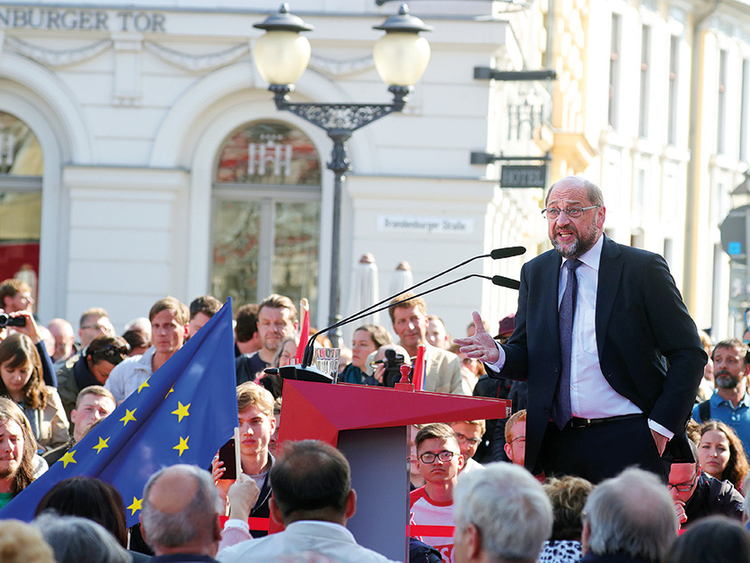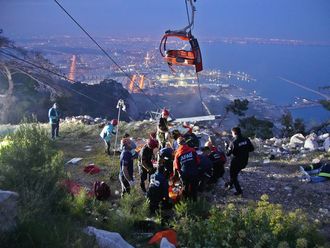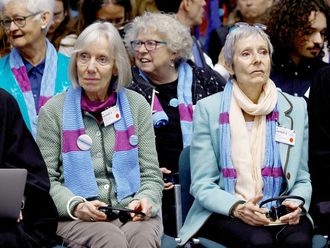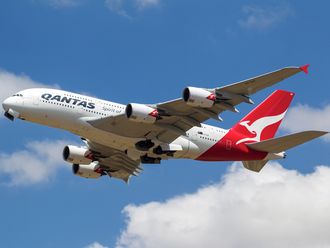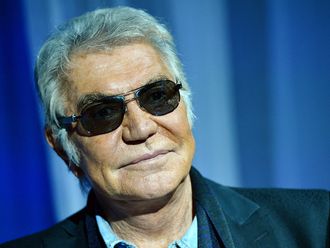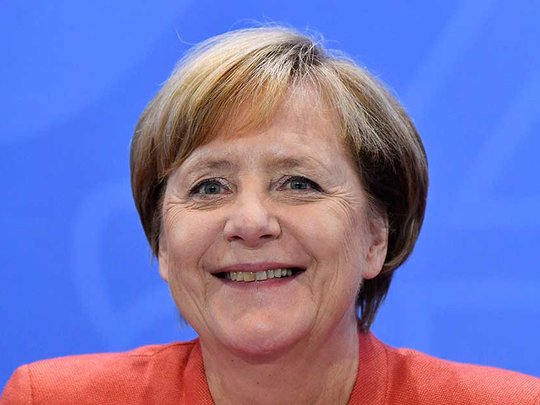
MADRID: Over the course of its 150-year-old history, Germany’s Social Democrat Party (SDP), has survived two world wars, the Nazis, and the fall of the Berlin Wall.
It just hasn’t come across the like of Angela Merkel before.
Heading into Sunday’s federal election, the German Chancellor looks to be coasting to her fourth straight term, likely setting her up to be the longest-service leader of modern Germany.
Only Otto von Bismark will have served his Kaiser and German Empire longer — and he never held elected office.
Merkel’s Christian Democratic Union (CDU) has a 15-point lead over the SDP, its coalition partner in the outgoing government.
Since coming to power in November 2005, Merkel has won elections in 2009 and 2013 — and Sunday should make it four.
Martin Schulz took over the SDP leadership in January to euphoria, leaving his post in the European Parliament to supposedly break Merkel’s stranglehold on German federal politics. Since then, he has fizzled, failing to separate his party’s policies from those of the de facto political leader of Europe and the European Union.
For 15 of the past 19 years, the SPD has been in governments, one initially led by party leader Gerhard Schroder and then as junior coalition partners to Helmut Kohl and now Merkel, so it’s not immune to voter criticism over a minimum wage of €8.50 (Dh37.40) per hour.
Steady economic growth
Besides, Germany’s low jobless rate of 4 per cent and steady economic growth make it difficult to criticise Merkel’s record. In effect, the SDP has been the victim of its own — and Germany’s — success, with social reforms and prosperity eroding the party’s socialist base.
Schulz and his party are offering greater social spending on pensions and education and loose promises to reform the European Union.
At a recent campaign rally in the Lower Saxon city of Braunschweig, Schulz repeated his stump speech to the SDP faithful: “On September 24 you have a choice between a chancellor who’ll avoid debate on all of this or someone who says where we want to go. Merkel wants to manage the past. We have to shape the future.”
For most Germans, however, the future looks to be in safe hands with Merkel. Her party is polling at the 40 per cent mark in polls, not enough for an overall majority, but certainly enough to make it the largest party in the new Bundestag, or lower house in the federal German parliament.
Come Monday morning, Chancellor Merkel’s first job will be to hammer out either another ‘Grand Coalition’ with the SDP, or to look at the Free Democrats of Green Party for support.
No alternative
Merkel won’t, however, be looking to the Alternative for Germany (AfD) party for support.
The far right-wing party is likely to pass the 5 per cent vote threshold that prevents small fringe political parties from entering the Bundestag.
It has been deeply critical of Merkel’s decision in the summer of 2015 to take in more than a million refugees from Syria and the Middle East.
That influx, combined with a string of terrorist incidents in Berlin and Munich, and in neighbouring Belgium and France, have helped stoke Islamophobia and anti-Muslim sentiment, particularly in smaller cities and in rural constituencies.
According to those same opinion polls, AfD could get as much as 10 per cent of votes cast in Sunday’s election.
The reality is that the integration of a million refugees has made little impact on Germany’s social programmes or its economy.
If anything, it has given the ageing nation an economic shot in the arm, providing willing workers to take low-paying jobs and who need to but everything — from consumer goods to second-hand cars — to completely rebuild their lives and homes.
For her part, Merkel reiterated in the only national televised leaders’ debate with Schulz earlier this month, she would take the million refugees in all over again if she had to. Come Sunday, German voters, will be taking her in, all over again. They don’t have to, but see no pragmatic alternative.


